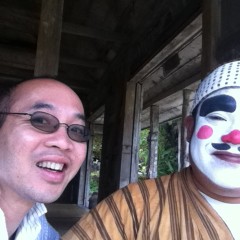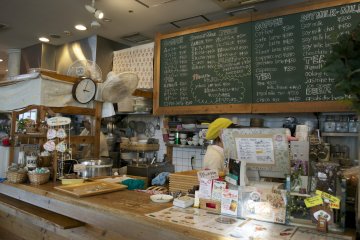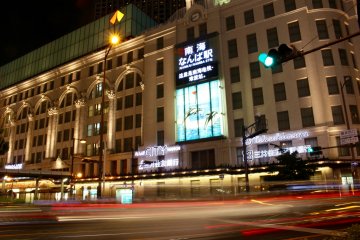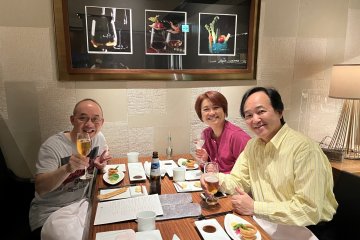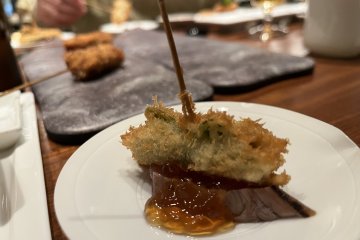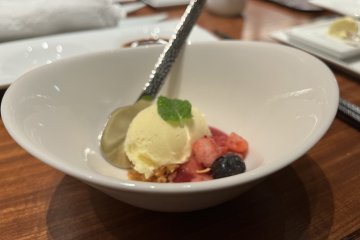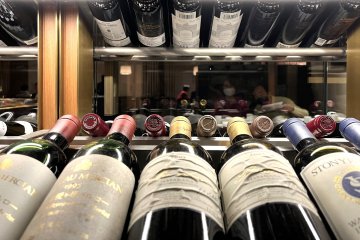Respect the Past, Create the New
Onkochishin or 温故知新 is a philosophy that is often associated with the artisans of Osaka and Kyoto. Confucius explains, “Exploring the old and deducing the new makes a teacher.” It means one needs to first learn the basics, learn the accumulated wisdom and only then can one create the new, food for thought in a time of environmental or cultural sustainability.
In this expression, 知新 means “new knowledge” while 温故 means “to visit the old”, making a connection between the “old” and the “new”. Just like the seed was here before the tree, the past will always be here before the present or future reaches us.
The Kitchen of Japan
In medieval times, Kyoto was the cradle of culture, from art to cuisine, and its influence on nearby Osaka was undeniable, however, as Osaka was a port connecting the world from Japan, whether it was sugar from the tropics or seaweed from Hokkaido, it became known as the pantry or kitchen of Japan, an achievement that was not an overnight success, but was the fruit of many centuries of continuous refinement. An example was the distillation of a philosophy from merchants in nearby Omi, called Sampo Yoshi, literally enabling the good of three, the buyer, the seller and the society. It is about doing business in a way in which both the buyer and the seller are satisfied and business that enables social contribution. Among the oldest companies in this area is Kongogumi, the world's oldest temple and shrine construction company, founded in Osaka in 578. Just up the road is the Dojima Rice Exchange, the world's first futures market built in 1730, one that ensures rice is available in good times and bad.
There is a saying, you are what you eat. A goat. An eel. They represent stamina, the latter associated with the energy sapping days of summer. At Shun Dining, their journey from farm to table comes from near and far. The chefs like to source what is season locally from places like Omi beef from Shiga Prefecture. It brings back to him, memories of growing up on a farm, like a communion with nature.
Kushiage – Soul Food of Osaka
What did you crave when you were a child? Possibly fried food like karaage fried chicken, or donuts or burgers. These foods are so simple, yet so addictive. In Japan, such popular foods are part of B-kyu gourmet, local soul food. In Osaka, the most famous B-kyu gourmet dishes are Takoyaki and Okonomiyaki, but have you heard of Kushiage?
Kushiage was invented in Shinsekai, a working man’s district downtown from Osaka Castle. It started as unpretentious and economical street food, offering bite sized chunks of meat, seafood and vegetables, held together by a skewer which is breadcrumbed and deep fried.
Osaka is known as the “Downtown of Japan”, where merchants work hard and play hard, so much so that there is a saying called kuidaore, where you eat until you drop. Thankfully, these Kushiage skewers are so easy to eat, you can eat the entire menu.
These days, Shun Dining takes Kushiage to another level, with its sophisticated European club like atmosphere, serving fine French wines with these skewers, and the introduction of new dipping sauces and salts. What has not changed is the made to order approach, ensuring freshly fried goodness that is a delight to taste. Yes this will send you broke a lot more quickly than the streets of Shinsekai, but here is a date night restaurant that will reinvent your thoughts of Kushiage, especially if you try their set menu, which can be booked here in 17 languages, from French and English to Tagalog. Located in the hallowed grounds of Swissotel, it brings street food into the realms of a business and upmarket visitor, without having to step outside the hotel. The chef reminds me that It is no longer an age of neighbors borrowing salt and oil. We live in another more fragmented society, one that he is trying to mend, by bringing old fashioned recipes to a sophisticated world audience. Using panko bread crumbs to deep fry nature's goodness may sound simple, but Michael Polland, the writer of A Botany of Desire once said, all cooking is alchemy, a transformation of something simple to something remarkable. Shun Dining also offers an award-winning wine list, so why not let the staff curate the best dining experience for you?
The Master and the Samurai
In ancient times, Samurai would dedicate themselves to their masters. The top of Osaka Castle may be a place of reverence, for Samurai and artisans making the pilgrimage to eat with the Daimyo. Imagine being in this special place where ancients before reflected on natures blessings and the purpose of their vocation. These days within a bird’s eye view from Osaka Castle, the masters at Shun Dining dedicate themselves to revisiting the old, and creating the new, so that whether you are relishing Kushiage for the first or the tenth time, your eyes will light up with new discoveries. Yet we are reminded also that a pilgrimage is not always to a destination, but to have a new beginning within ourselves. So as we partake in this meal started by the founders of Shinsekai, what is our new beginning as we reacquaint with friends and make new ones.


